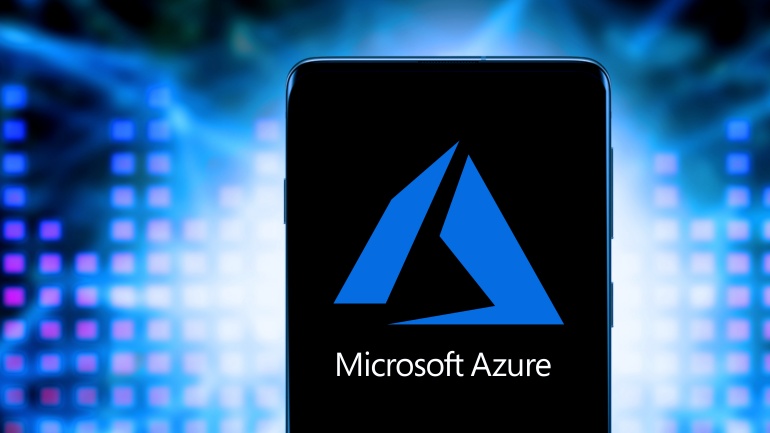Telecommunications giant Orange and technology company SmartKey have created the first Blockchain of Thing (BoT) SIM card to implement access control and other smart city functions on a mobile phone. Thanks to the new partnership, access control, smart bikes, utilities and other smart city elements will soon be available to manage through blockchain technology. The partnership is based on the SmartKey pilot program “Rescue without Barriers”, which allows the Olsztyn city rescue services in Poland to have instant access to each safe area and building in their district using blockchain. The technology enables hospital barriers and other gates to automatically unlock and open for rescue vehicles, thereby reducing response times. This is one example of many possible access control features based on blockchain and connectivity in the licensed operator’s band, setting the scene for Orange as the first global operator to use blockchain to promote the smart cities of…
SoftBank aims at providing connectivity from space SoftBank has announced that it will begin promoting the roll out of Non-Terrestrial Network (NTN) solutions that provide connectivity from space and the stratosphere. SoftBank NTN solutions will include the Geosynchronous Earth Orbiting (GEO) satellite NarrowBand IoT (NB-IoT) services provided by Skylo Technologies. The two companies recently agreed to cooperate in offering satellite services in Japan. SoftBank’s NTN portfolio of solutions will also include Low Earth Orbit (LEO) satellite communications provided by OneWeb, and High Altitude Platform Station (HAPS) stratospheric telecommunications platforms provided by SoftBank’s subsidiary HAPSMobile. Read more at: https://tinyurl.com/murtvfhr Black Lotus Labs uncovers hacktivist campaign Black Lotus Labs, the Lumen Technologies security threat intelligence division, has presented evidence that hacktivists have recently attacked switches and routers in a minimum of 100 organizations. The hacktivists managed to access those Internet-connected devices because of an incorrect Cisco Systems Smart Install configuration. The Black…
Huawei launches HarmonyOS Huawei has officially released its HarmonyOS operating system for all devices. It looks like HarmonyOS will be available on almost all Huawei devices in the coming years, and the company will describe it as an upgrade. As a next-gen smart device operating system, HarmonyOS provides a common language for connecting and collaborating across different devices, giving users a more user-friendly and secure experience. The OS uses distributed technology to meet the diverse needs of all the different devices in a single system, allowing for flexible deployment. Read more at: https://tinyurl.com/mj8j4j99 Vodafone and CityFibre expand their partnership Vodafone and CityFibre have expanded their partnership to offer Vodafone Ethernet services for business customers. In this new partnership, Vodafone will use CityFibre’s Ethernet infrastructure to provide local access to its customers. Therefore, businesses in 12 UK cities and towns will have an alternative and cost-effective High Bandwidth Ethernet service. Under…
Telecommunications company Liberty Global and Digital Colony, a global digital infrastructure investment firm, have announced plans to launch a European Edge data center joint venture, called AtlasEdge Data Center. The Joint Venture (JV) will manage more than 100 edge data centers in Europe, combining the edge assets in the Digital Colony and Liberty Global real estate portfolios. AtlasEdge Data Centers will be directed by Josh Joshi, the former CFO of Interxion. In the new business, Liberty Global will devote its digital infrastructure assets, including technical real estate portfolios, as well as strategic and operational business support. The Digital Colony will contribute operational expertise, strategic direction and capital to provide a foundation for the growth and merger of edge co-location service capabilities across Europe. AtlasEdge will provide services through a wide network of devices close to the consumers and enterprise end users. The company’s goal is to meet the…
The world is still standing on its tip toes and looking over its shoulder because of how our lives have changed since the end of 2019. Yes, we are all tired of hearing this, but the truth is that a pandemic is still very real, and we all have a duty to protect ourselves and each other. Therefore, some of the biggest events in the telecommunications industry are going virtual in 2021. Even though general societal norms have been halted to a large extent, we are still moving forward, albeit at a slow pace with much more cautious steps. We invite you to explore the list we have compiled of the top telecom events that will take place online this year. CC-Enterprise Webinar.Live Session CC (Carrier Community) is organising its next digital Enterprise CC-Webinar.Live Panel Discussion and Knowledge Sharing Session, scheduled to take place on April 12, 2021. During…
Mobile World Congress 2021 to require a negative Covid test for entry GSMA, the organization hosting the Mobile World Congress 2021, has announced a health and safety plan for its event. Of course, requirements include doing all the usual things such as wearing masks, washing hands, keeping distance, and following the proper sneezing and coughing esthetics, but there are more specific safety outlines. One of the most important stipulations in place will be the requirement of proof of a negative Covid test, which will be fully managed by the MWC app. Read more at: https://tinyurl.com/5ssd8d8u Intel to tackle data privacy with DARPA Intel has become a part of the Defense Advanced Research Projects Agency (DARPA) as a research partner to help run its Data Projection in Virtual Environments (DPRIVE) program. This program is seeking ways to improve fully homomorphic encryption (FHE), that allows the processing of encrypted data without the…
Ever since VoIP disrupted the telecom sector, things have never been the same. In today’s fast track world everyone is familiar with this technology. Maybe not by name, but certainly with the use of it. By using VoIP with a capable Internet connection, you can call anyone, anywhere in the world, without paying your network service provider for the call. Starting to sound familiar, right? Today, VoIP is the dominant force in telecoms and continues to grow in influence. VoIP is becoming more and more valued by the companies requiring communications, which basically includes every company in existence today. It is predicted that the VoIP market will grow by 12% between 2019 and 2025. All thanks to its low cost, decentralization and extensive capacity. It is clear that VoIP is adapting to the cosmopolitan era that Immanuel Kant philosophized about. It is clear – VoIP advancement continues to strengthen its…
Telia takes a big step toward IoT The Swedish operator Telia has launched a global IoT connectivity offering for enterprises, pledging that it can cut almost a third off the average cost of IoT communications. The new portfolio is called Telia Global IoT Connectivity. In a statement, the operator said that the portfolio consists of a Telia eSIM, that is powered by eUICC, a global ecosystem of pre-integrated operators, a one-of-a-kind programmable network and a cloud-based platform for system management. Björn Hansen, Head of IoT at Telia, said: “This is a true game changer for IoT connectivity.” Read more: https://tinyurl.com/wtk6d7pi Ekinops with Orange gives 5G a trial run Ekinops has successfully completed 5G business connectivity testing with Orange Business Services at its Orange Labs. To test the connectivity, Ekinops used its 5G-capable OneAccess router that is based on its OneOS6 software. According to Ekinops, the software enables a variety of…
Broadvoice, a provider of cloud-based Voice over IP telecommunications services to small, medium and enterprise businesses in the United States, recently announced its intention to participate in the Marine Corps Reserve’s Toys for Tots charity. This initiative will help the increasing number of people that are in need of extra support during the holidays due to the economic hardships brought about by the pandemic. Toys for Tots is a program run by the US Marine Corps Reserve that distributes toys to children whose parents cannot bear the expenses of buying gifts for Christmas. The program was started in 1947, being founded by reserve officer Major Bill Hendricks. The organization partly relies on corporate sponsors and benefactors, such as Broadvoice, who pitch in and help increase monetary donations, toys and awareness of the program. The program’s mission is to gather as many new, unwrapped toys as possible in October,…
Microsoft is expanding in the communications market with the introduction of their Azure Communication Services. This new service is a fully managed communication platform for integrating calls, chats and SMS into business organizations and their applications. Azure Communication Services allows users to develop new communication solutions or integrate them into existing applications, avoiding high costs, complexity, or time wastage. Voice and video calling, as well as chat services will be available immediately, while SMS and phone numbers will be released in October. Over the past few years, Microsoft has gained a wealth of experience in this area, thanks to the large success of their Teams service. Azure Communication Services also uses the same secure platform that runs Microsoft Teams and is built natively on Azure. Scott Van Vliet, corporate vice president for Intelligent Communication at the company, commented: “Azure Communication Services is built natively on top of…













